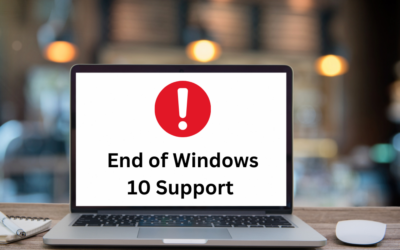There are numerous reasons why Wi-Fi in an office could be slow. These can range from network-related issues to physical interference and even hardware problems. By understanding these potential causes, business owners can take appropriate measures to address slow Wi-Fi speeds and improve overall network performance. Here are just a few:
1. Network Congestion: One of the most common reasons for slow Wi-Fi is network congestion. If too many devices are connected to a single Wi-Fi network, the available bandwidth may become insufficient to handle the demands of all the devices. This would require an upgrade for your office’s Wi-Fi network.
2. Physical Obstructions: Wi-Fi signals are radio waves that can be weakened or blocked by physical objects such as walls, floors, and furniture. If the Wi-Fi router or access point is located far from users or behind obstacles, the signal strength may be reduced, causing slow connections.
3. Outdated Hardware: Outdated routers, access points, and network adapters can also be a significant factor in slow Wi-Fi performance. Older hardware may not support the latest Wi-Fi standards or offer advanced features like multiple-input, multiple-output (MIMO) technology, which can improve Wi-Fi speed and reliability. Upgrading to modern hardware with better capabilities can significantly enhance network performance.
4. Inadequate Network Design: Poorly designed network infrastructures can also contribute to slow Wi-Fi speeds. A well-designed network considers the needs of the organization, the physical layout of the office, and the expected number of users. An IT professional can help design an adequate network for almost any office setting.
5. ISP-related Issues: Sometimes, the issue is not within the office itself but with the Internet Service Provider (ISP). Slow internet speeds from the ISP can bottleneck the Wi-Fi connection and make it feel slow. It is essential to have an appropriate internet plan that can handle the bandwidth requirements of the office.
6. Malware or Security Issues: Malware or unauthorized users on the network can consume bandwidth and slow down the Wi-Fi connection. Ensuring proper security measures – such as using strong passwords, enabling WPA3 encryption, and regularly scanning for malware can help protect the network and maintain performance.
If you’re dealing with slow Wi-Fi in your office that is slowing your entire team down, then contact UpTech360 today! Our team can analyze your network and improve its overall performance so your team can be more efficient!
Leveraging Cloud Services to Enhance Business Efficiency Along the Jersey Shore
For businesses operating along the Jersey Shore, leveraging cloud services offers a multitude of benefits that can transform operations. Cloud computing provides scalable resources, improved data...
What Happens To Your Applications When Windows 10 Support Ends – And What It Means For Jersey Shore Businesses
Mark your calendars: October 14, 2025 – the day Microsoft officially ends support for Windows 10. After this date, there will be no more security updates, bug fixes or technical support. But for...
Mobile Device Management for Jersey Shore Businesses: Securing Your On-the-Go Operations
For businesses along the Jersey Shore, the ability to operate seamlessly on the go is crucial, especially when quick responses and real-time updates are essential. Mobile Device Management (MDM) is...


